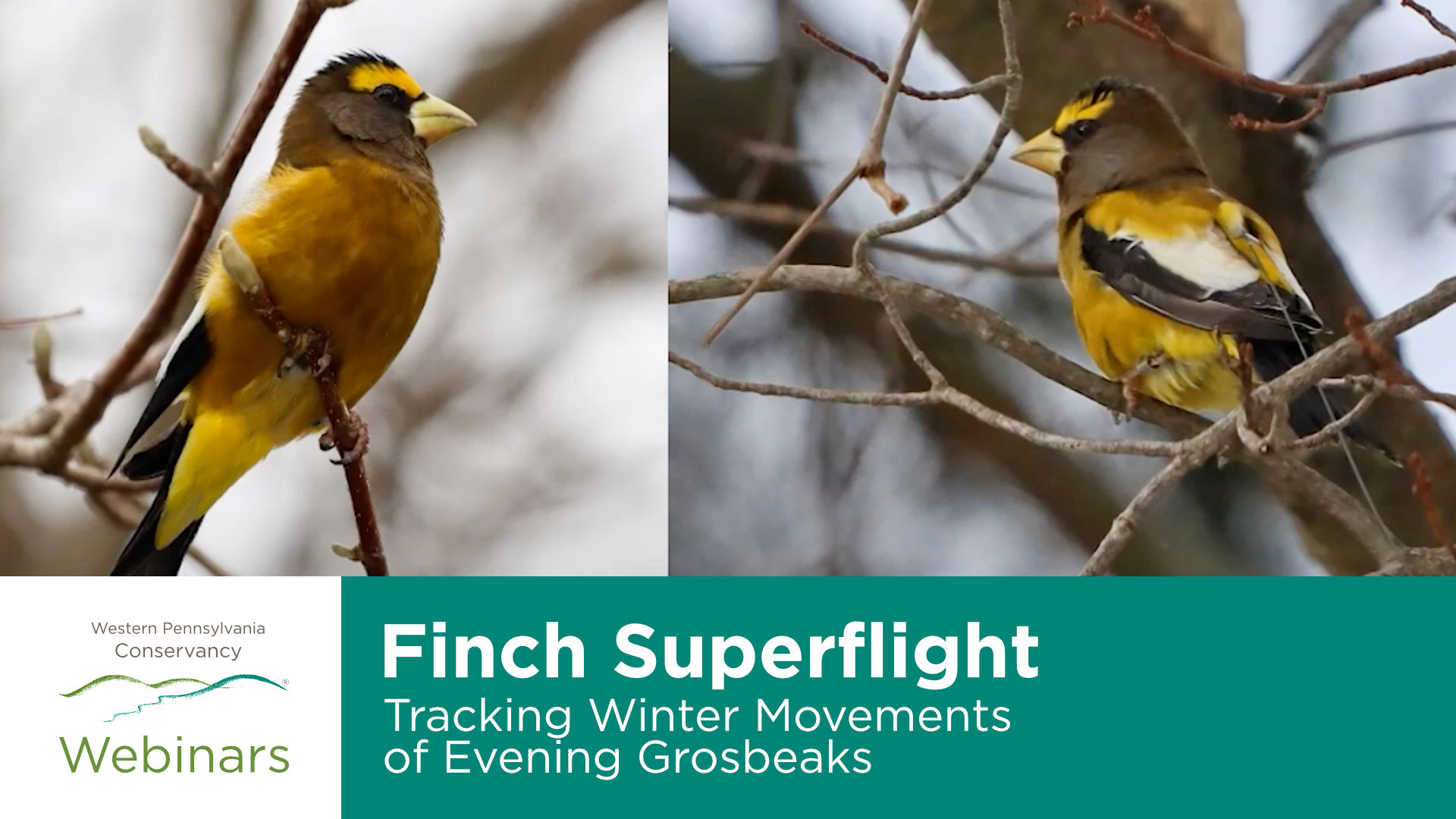
In the past 50 years, we have lost three billion birds across North America, with the steepest decline in the evening grosbeak population. Scientists began studying wintering evening grosbeaks in Western Pennsylvania in 2017 to learn more about their natural history, ecology and migration movements. They are a species that follows irruptive migration – sudden, but regular mass movements in response to changes in their environment. This winter, we have seen a widespread irruptive migration of boreal finches, including grosbeaks, in numbers we haven’t seen in decades.
Join David Yeany, avian ecologist at the Western Pennsylvania Conservancy, for a free webinar to learn about this year’s finch superflight and how we are using new technology to track winter movements of evening grosbeaks and inform the conservation strategies to help protect this species.
About the Presenters
David Yeany II, Avian Ecologist in the Pennsylvania Natural Heritage Program at the Western Pennsylvania Conservancy
David Yeany is the avian ecologist for the Pennsylvania Natural Heritage Program at the Western Pennsylvania Conservancy. David joined PNHP in 2011 and has 18 years of professional experience in ornithology and bird conservation. His work focuses on bird Species of Greatest Conservation Need, including rare and endangered species.
David’s projects include bird monitoring and surveys; applied habitat relationship studies; spatial analysis in GIS; and bird tracking research with new technologies. In addition to representing PNHP in several bird conservation groups and committees, he co-leads the Evening Grosbeak Working Group, formed as part of the Road to Recovery pilot species project.
